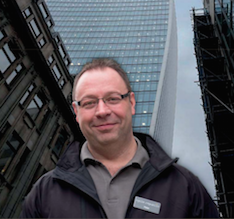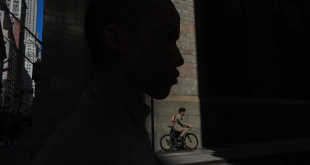Seven years after the closure of the brand by parent company Halfords, Cycle Republic has been revived and rebuilt from the ground up. Kieran Howells catches up with managing director Peter Kimberley, who affirms that with openings all over the UK and more on the way, the company has no intention of stopping…
Can you give us a brief history of Cycle Republic?
We started by opening our first store in Euston two years ago this December. We’re now at 12 shops and recently we have opened our latest one in Birmingham, which is doing well. In the last year we launched our own dedicated Cycle Republic website. We’ve carried the vision we’ve always had all the way through.
What was that vision?
Our customers come first and that’s what the business is set up around. It’s created for cyclists. We want to get people into cycling. A lot of work went into talking about what it was that we were going to build. 12 months worth of work. I felt that there was space in the market for an accessible bicycle shop that wowed customers. I mean really wowed them.
What were the key things you set out to achieve?
One was a good location. Where were we going to be based? Where is an optimal location and what does a good shop look and feel like? The other priority was the proposition. What are we trying to offer our customers? How are we going to be different? We decided that service would be the driving force. That meant doing things like offering free puncture repairs and courtesy bikes, things that, for me as a cyclist, are important.
What training does your staff go through before they start serving and interacting with customers?
We have an in-house training department that solely works for Cycle Republic. We focus on brand training and new products, but it goes back further than that. Everyone who works for us rides a bike, everyone who works for us is a passionate cyclist and that’s very important. We’re training people, but we’re also trying to attract friendly and helpful bike experts. All of the knowledge and passion is already there. All of our shops independently, and every manager operates their own shop.
How have things changed since the Euston shop opened?
I wouldn’t say it’s changed massively, I’d just say that we’ve pushed things further as we’ve learned more. The most exciting changes are the new partnerships with brands. We like to test things out, like the new Garmin play table, which has been a big success. We’re announcing a really big development in the workshops very soon, which will quickly be taken over by a specialist brand. We can’t say which brand yet, but we’re very excited to be working with them.
You’ve mentioned the Garmin station – tell us about its origins.
It came about because we keep in constant contact with Garmin, and we both were curious about how to best to give the customer an exciting experience. With technology constantly changing, people need a chance to really get to grips with the latest stuff. It’s
no fun if we don’t let people interact with the products.
One of the biggest developments in the last few months is the website. What went into putting that together?
We took the same approach that as was taken in building the shops. We stepped back to think about functionality and layout. We didn’t want to rush it; we wanted a very specific feel to the whole thing. It’s built on a modern platform, which means that it’s easy to update in order to keep it looking and feeling excellent. It’s not just about what works now, it’s about being able to do brilliant things in the future as well.
12 shops have sprung up all around the UK in under two years, where’s next?
We’re going up into Scotland. Edinburgh will be our next location, which will be just fantastic. There are many other places that I feel are great cycling cities, but it’s about finding the perfect shop in the perfect location. Anyone can have a shop, but we want to be in the heart of our customers’ cities. Other places I can see us heading to are Southampton, Glasgow, Leeds, Sheffield and Cardiff. There are lots of opportunities out there, but Edinburgh is next!
Do you think that, within the next year, there will be a Cycle Republic store in each of the cities mentioned?
Yes, I’d like to think so. They’re definitely on my list of places we’d like to be, how soon it’ll be until you start seeing those stores pop up will depend on availability. The UK is an amazing place for cycling and there are so many opportunities for us. We had a very strong summer, which is going to do us a lot of good.
How close is an Edinburgh store to being open to the public?
I’d like to think we’d have something open about February time, maybe even January. You never know, these things can change, but I’d like to think that by February we’d be opening the doors.
You’re a veteran of the industry, where do you see the e-bike market heading?
You can really see where the electric bike market is going to grow, and I think it’s mainly based in the commuter market. The standard commute for most cities is about five miles, and an e-bike can take you to about 20 miles on the same input from the rider. When I think e-bike, I think power-assisted, because you can pedal those bikes, you can have assistance, or you can go full electric. It’s about giving those people more assistance to be out and about.
A lot of people are still reluctant to spend large sums on an e-bike; is that something you’re investing in now?
We’re definitely investing in e-bikes now. We have an entry point of £700 which is doing extremely well for us, but the range will always vary all the way up to the Gocycle at £3500, which again has been a huge success for us. You’ll never take pedal cycling away, but e-bikes aren’t trying to do that. They’re introducing new people to cycling. That’s always been the heart of Cycle Republic.
What about the e-MTB market?
I can talk from a personal perspective about that, as mountain biking is completely my bag. I had the pleasure of going out a few months ago on a Haibike and it was phenomenal. I went down to Afan Forest Park and there were loads of e-bikes around. The majority of mountain bikers like coming down the hill, and that bit of assistance helps you to get up quicker and easier. I think the reason it hasn’t taken off is because until now, there hasn’t been a massive range of great e-mountain bikes. If you look at the brands that are coming out with bikes now, they’re really great.
Layout is a struggle for some bike shops. What’s your approach?
When you walk into one of our shops, everything is organised. Every different type of bike or gear has a dedicated section, and those sections are clearly marked. We always display bikes from good, better to best, which helps people stay within their price range and gives them and idea of what they’re getting for their money. All the header boards around the shop are very deliberate, they help the customer navigate their way around the shop.The headers that we use may not always correspond to the conventional name for the product, but it’s the terminology the customers use. If that’s what they call something, that’s what we call it too, regardless of what the rest of the industry says.
Where do you see the industry going?
I think we’ll continue to see cycling grow, whether that’s through events like the Olympics, or due to increased infrastructure. The big question for me from an industry standpoint is how well we’re doing at getting people on bikes. You
can put the infrastructure in, but you need to help people pick the right equipment, and feel confident and safe. The retailers will determine how successful cycling
is in the future.
 BikeBiz Bicycle and cycling retail news
BikeBiz Bicycle and cycling retail news




